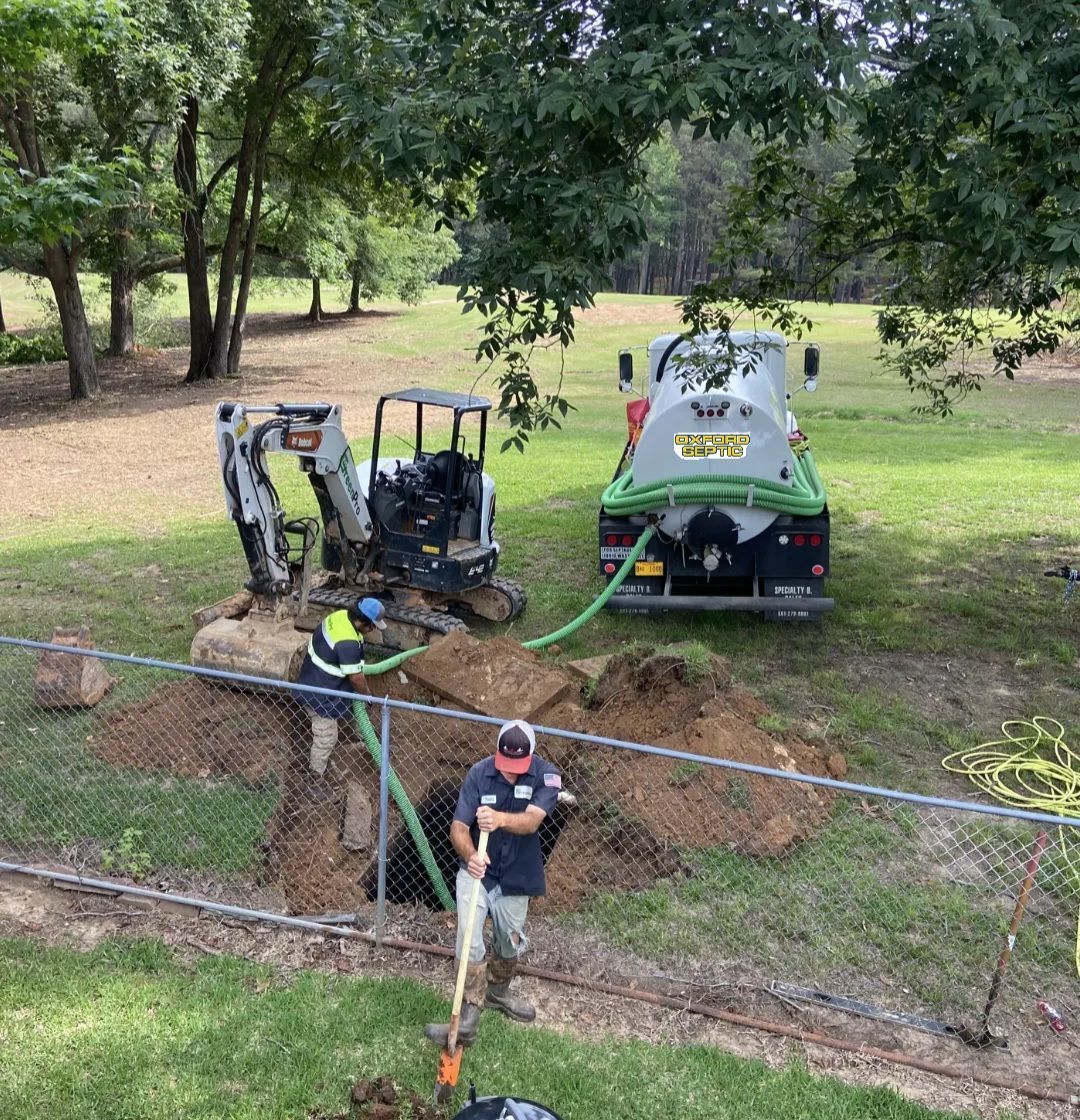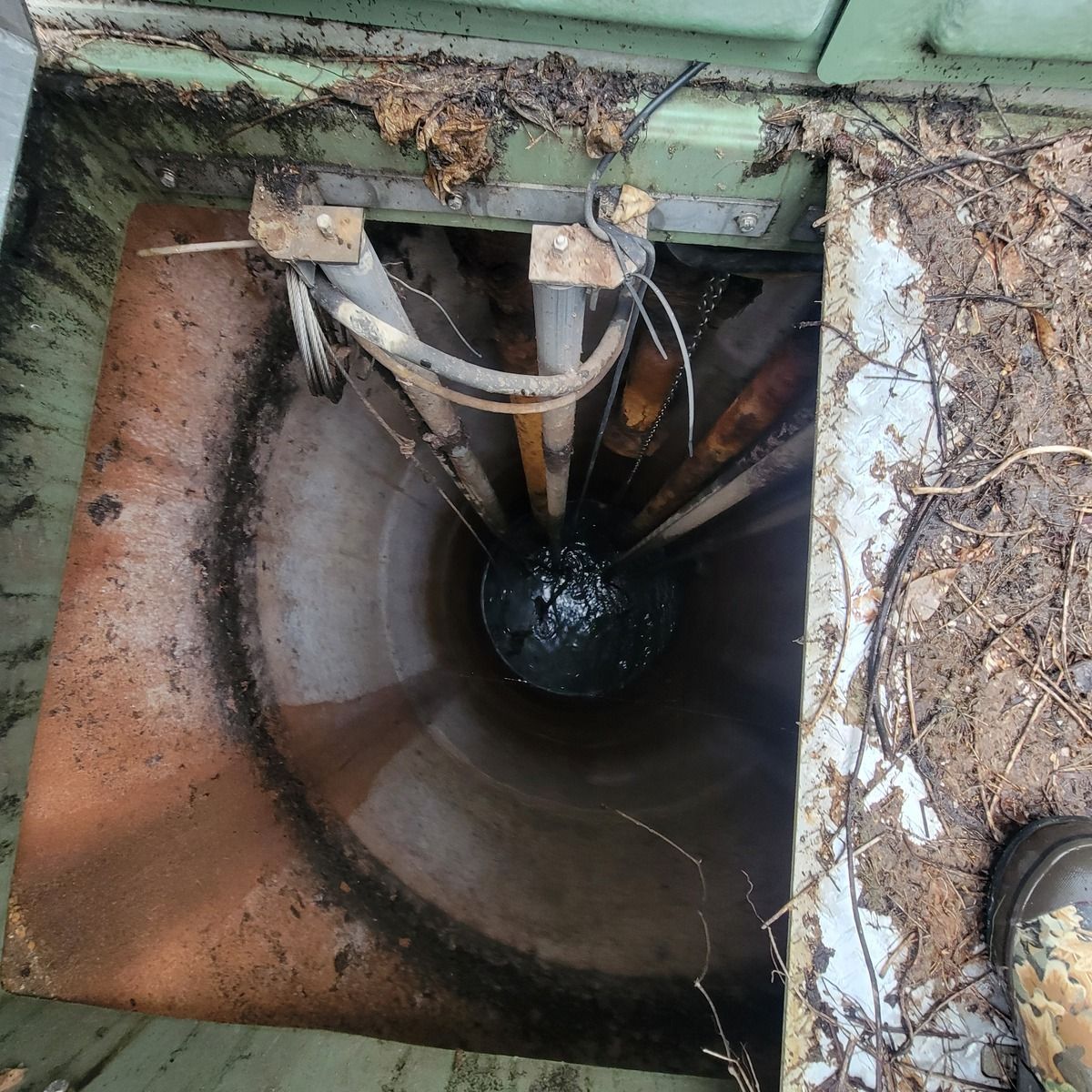Dos and Don'ts of Septic System Care in Oxford, MS | Oxford Septic
April 30, 2024
The Dos and Don'ts of Caring for Your Septic System in Oxford, MS
Your septic system, although often hidden from view, plays a crucial role in managing wastewater in your Oxford, MS, home. Proper care and maintenance are essential to keep it functioning efficiently and avoid costly repairs. In this guide, we'll explore the dos and don'ts of septic system care, helping you ensure its longevity and reliability.
The Dos of Septic System Care
1. Regular Pumping: Do schedule regular septic tank pumping every 3-5 years. This removes accumulated solids and prevents blockages in your system.
2. Conserve Water: Be mindful of water usage. Fix leaks promptly, install water-saving fixtures, and spread out water-intensive activities to prevent overloading the system.
3. Use Septic-Safe Products: Opt for septic-safe cleaning products and toilet paper. Harsh chemicals can disrupt the balance of beneficial bacteria in your tank.
4. Maintain Your Drain Field: Regularly inspect the drain field for signs of damage, root intrusion, or ponding. Keep the area clear of trees and shrubs that could interfere with your system.
5. Professional Inspections: Schedule professional inspections to assess your septic tank's health and identify issues early. This can save you money in the long run.
6. Effluent Filter Maintenance: If your system has an effluent filter, clean or replace it as needed to ensure proper effluent flow.
7. Septic System Jetting: Consider professional septic system jetting services to clean your system's pipes and lines, preventing blockages and ensuring efficient operation.
8. Be Cautious with Landscaping: When landscaping around your drain field, choose grass or shallow-rooted plants. Avoid planting deep-rooted trees near the septic system, as their roots can damage pipes.
9. Keep Records: Maintain records of septic system maintenance, including pumping schedules and inspection reports. This helps track its health and performance.
10. Educate Household Members: Ensure everyone in your household understands how the septic system works and what should and shouldn't be flushed.
The Don'ts of Septic System Care
1. Don't Overload with Water: Avoid excessive water usage in a short period. Too much water can flood the system, leading to failure.
2. Don't Flush Non-Biodegradables: Never flush non-biodegradable items like disposable wipes, sanitary products, paper towels, or household chemicals. These can clog the system.
3. Don't Pour Grease or Oil: Refrain from pouring cooking grease or oil down the drain. Grease can solidify and block pipes.
4. Don't Use a Garbage Disposal: Garbage disposals increase the load on your septic system by introducing solid waste. Avoid using them.
5. Don't Ignore Leaks: Promptly repair any plumbing leaks in your home. Leaks can overload your septic system and lead to damage.
6. Don't Drive Over the Drain Field: Keep heavy vehicles, like cars or machinery, off the drain field. This can compact the soil and damage the system.
7. Don't Neglect Regular Maintenance: Ignoring septic system maintenance can lead to costly repairs or even system failure. Stick to a proactive maintenance schedule.
8. Don't Attempt DIY Repairs: Avoid attempting to repair your septic system yourself. Always hire a qualified professional for maintenance and repairs.
9. Don't Skip Inspections: Regular inspections are essential. Skipping them could allow issues to worsen undetected.
10. Don't Overuse Water Softeners: Excessive use of water softeners can lead to a high volume of water entering your septic system, potentially causing problems.
By following these dos and don'ts of septic system care, you can maintain a healthy and efficient system in your Oxford, MS, home. Regular maintenance and responsible usage are the keys to avoiding costly repairs and ensuring your septic system's reliability for years to come.
For professional septic system services, including inspections, pumping, and jetting, contact Oxford Septic Service. Our experienced team is here to assist you in maintaining your septic system's health and performance.
Remember, taking good care of your septic system not only protects your investment but also contributes to a clean and sustainable environment.

February 19, 2025
Maintaining a healthy septic system is essential for every homeowner, and one crucial aspect of this maintenance is regular septic tank pumping. In this comprehensive guide, brought to you by Oxford Septic Services, we'll cover everything you need to know about septic tank pumping, from why it's important to how often it should be done and what to expect during the process. Chapter 1: Understanding Septic Tank Pumping Explanation of the purpose of septic tank pumping, which is to remove accumulated solid waste and sludge from the tank to prevent backups, clogs, and system failures Overview of how septic tank pumping works, including the use of specialized equipment to extract the contents of the tank and transport them to a treatment facility for proper disposal Discussion of the factors that can influence the frequency of septic tank pumping, such as household size, water usage, and the size of the tank Chapter 2: Signs That Your Septic Tank Needs Pumping Identification of common signs that may indicate it's time to pump your septic tank, such as foul odors, slow drains, sewage backups, or standing water in the yard Explanation of how these signs can indicate an overfull or malfunctioning septic tank that requires immediate attention Tips for conducting regular inspections of your septic system to monitor the level of sludge and scum in the tank and determine if pumping is necessary Chapter 3: The Septic Tank Pumping Process Step-by-step explanation of what to expect during a septic tank pumping service, from the initial inspection and locating the tank to pumping out the contents and cleaning the tank Overview of the equipment and techniques used by professional septic service providers like Oxford Septic Services to safely and efficiently pump septic tanks Discussion of the importance of proper disposal of septic waste and adherence to environmental regulations to protect public health and the environment Chapter 4: Benefits of Regular Septic Tank Pumping Explanation of the benefits of regular septic tank pumping, including preventing backups and system failures, extending the lifespan of the septic system, and protecting the environment Discussion of how regular pumping can save homeowners money in the long run by avoiding costly repairs and replacements Testimonials from satisfied customers who have experienced the benefits of regular septic tank pumping provided by Oxford Septic Services Conclusion: Regular septic tank pumping is a critical aspect of septic system maintenance that every homeowner should prioritize. By understanding why septic tank pumping is important, recognizing the signs that indicate it's time to pump your tank, and partnering with a trusted septic service provider like Oxford Septic Services, you can ensure that your septic system remains healthy and functional for years to come.

February 5, 2025
Congratulations on your new home! As a new homeowner, understanding how your septic system works and how to properly maintain it is crucial for ensuring its longevity and preventing costly repairs. In this comprehensive guide, brought to you by Oxford Septic Services, we'll walk you through everything you need to know about your septic system, from how it functions to essential maintenance tips. Chapter 1: How Does a Septic System Work? Overview of the basic components of a septic system, including the septic tank, drain field, and soil absorption area Explanation of how wastewater flows from your home into the septic tank, where solid waste settles and is broken down by bacteria, and liquid waste flows out into the drain field for further treatment by the soil Diagrams and illustrations to help new homeowners visualize the process and understand the role of each component in the system Chapter 2: Signs of Septic System Problems Identification of common signs that may indicate a problem with your septic system, such as foul odors, slow drains, gurgling noises, or soggy areas in the yard Discussion of the importance of addressing these signs promptly to prevent more significant issues and potential property damage Tips for conducting visual inspections of your septic system, including checking for standing water or sewage backups in the yard and inspecting the area around the septic tank and drain field for signs of damage or deterioration Chapter 3: Essential Septic System Maintenance Overview of the importance of regular septic system maintenance for preventing costly repairs and ensuring proper functioning Explanation of the maintenance tasks that homeowners should perform regularly, such as having the tank pumped every 3-5 years, conserving water usage, avoiding flushing non-biodegradable items, and scheduling routine inspections by a professional septic service provider Tips for maintaining a healthy septic system, including using septic-safe household products, avoiding harsh chemicals, and planting grass or shallow-rooted vegetation over the drain field to prevent soil erosion Chapter 4: Working with Oxford Septic Services Introduction to Oxford Septic Services and the range of services they offer, including septic system inspections, maintenance, repairs, and installations Benefits of partnering with a reputable septic service provider like Oxford Septic Services, including experienced technicians, prompt service, and peace of mind Testimonials from satisfied customers who have relied on Oxford Septic Services for their septic system needs and experienced excellent results Conclusion: As a new homeowner, understanding your septic system and implementing proper maintenance practices is essential for protecting your investment and ensuring the health and safety of your family and the environment. By following the guidance provided in this guide and partnering with a trusted septic service provider like Oxford Septic Services, you can enjoy peace of mind knowing that your septic system is in good hands.
© 2025
All Rights Reserved | Oxford Septic Service | Site Creds
